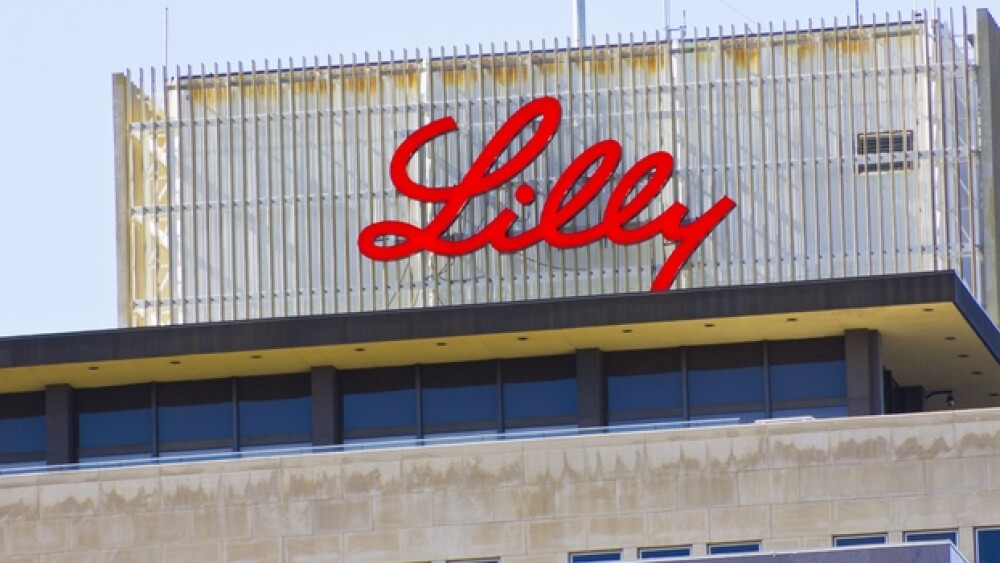Should this antibody continue to prove to be safe and effective in clinical studies, it will replace the previously authorized bamlanivimab, which has since been sidelined due to the rise of viral variants that diminished its effectiveness.
Jonathan Weiss/Shutterstock
AbCellera and Eli Lilly have moved a second COVID-19 antibody into the clinic. The companies will assess LY-CoV1404 in patients with mild-to-moderate COVID-19. Preclinical data showed the antibody demonstrated potency against all known variants of COVID-19.
This morning, AbCellera said LY-CoV1404 binds to a rarely mutated region of the SARS-CoV-2 spike protein, which neutralizes all currently known variants of the virus, including the U.K., Brazil, California, South Africa and New York strains. This binding ability could signal a game-changer in treatment of patients and provide even greater protection against the virus.
The preclinical data showed LY-CoV1404 is highly potent. And that has implications for reducing the amount of antibody necessary for clinical dosing, and potentially enabling a subcutaneous route of administration for either treatment or prophylaxis of COVID-19, the company said.
LY-CoV1404 was developed from a fully human monoclonal antibody identified from a blood sample obtained approximately 60 days after viral onset from a convalescent COVID-19 patient. The antibody blocks viral binding to ACE2 by targeting a highly conserved epitope on the SARS-CoV-2 spike glycoprotein receptor binding domain (RBD). That provides what AbCellera called a “strong, well-documented mechanism for the potent neutralizing activity.”
Additionally, LY-CoV1404 is substantially more potent in viral neutralization assays compared to other broadly neutralizing antibodies, the company said.
Should this antibody continue to prove to be safe and effective in clinical studies, it may be used alone or in combination with other antibodies including the previously authorized bamlanivimab, which now must be administered together with etesevimab in the U.S. due to the rise of viral variants that diminished bamlanivimab’s effectiveness. Eli Lilly is also assessing bamlanivimab in combination with a monoclonal antibody developed by Vir Biotechnology and GlaxoSmithKline. VIR-7831 is being studied in combination with bamlanivimab in low-risk patients with mild to moderate COVID-19.
“Our analysis of LY-CoV1404 shows that it is exceptionally potent and neutralizes currently known variants of concern. We are encouraged by the potential of LY-CoV1404 to provide a long-term complement to vaccines in the likely event that COVID-19 becomes endemic. Our partner Lilly, who has been a leader in rapidly developing, testing, and globally supplying COVID-19 antibody treatments, has advanced LY-CoV1404 into the clinic as part of its ongoing BLAZE-4 trial,” AbCellera Chief Executive Officer Carl Hansen said in a statement.
Bo Barnhart, AbCellera’s scientific director, said the antibody’s neutralizing power against COVID-19 seen in preclinical data will allow the companies to explore its use at lower dose levels. That may support the subcutaneous administration instead of infusion, which would increase the availability of more doses to treat patients around the world, Barnhart said.
In support of its continued efforts against COVID-19 and other viral threats, AbCellera recently broke ground to expand its headquarters in Vancouver. The project is expected to allow the company to dramatically scale up by adding hundreds of employees to its current 250-person workforce over the next few years.
The expansion is expected to include two facilities totaling 380,000 square feet. The facilities are expected to be completed in 2023 and 2024.
“We’re building state-of-the-art facilities in Vancouver to accelerate the development of new antibody therapies with biotech and pharma partners from around the world,” Hansen said in a statement. “We intend for this technology campus to serve as a place where talented people can contribute to dramatically improving and accelerating antibody discovery for the benefit of patients everywhere.”





